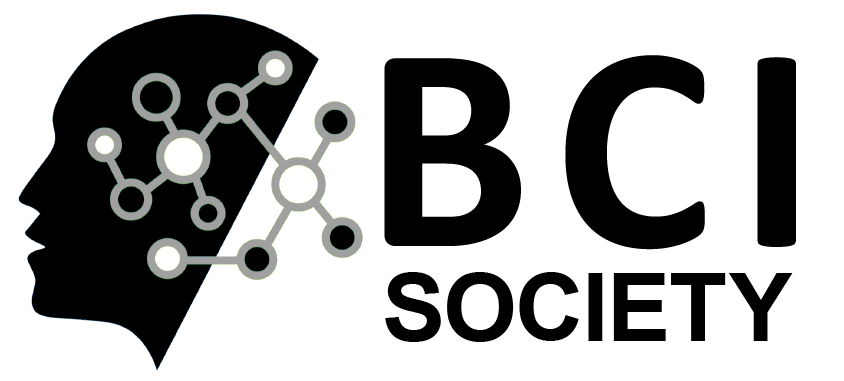Elections
Board elections open April 15
Members of the BCI Society are invited to participate in the election process by nominating candidates or standing for the upcoming board elections.
The Board of the BCI Society consists of 12 seats. Until this year’s elections, four members are Officers:
- President
- Vice-President
- Past President
- Treasurer/Secretary
Officers are elected by the Board and stay on for 2 years. Board members are elected for 3 years and a maximum of 2 terms.
This election period, two seats are open for election.
Current Board
- Mariska Vansteensel (President), (IC) term ends 2025
- Marc Slutzky (Vice President), (IO) term ends in 2025
- Jennifer Collinger (Past President), (IC) term ends 2024
- Gernot Müller-Putz (Treasurer), (NC) term ends 2025
Reinhold Scherer, (NC) term ends in 2024
Dean J. Krusienski, (NI) term ends in 2025
Davide Valeriani, (NI) term ends in 2025
Theresa Vaughan, (NI) term ends in 2025
Cuntain Guan (NI, Control) term ends in 2026
Robert Gaunt (I, Other) term ends in 2026
Christian Herff (IC, I Other) term ends in 2026
Betts Peters (NI, Other) term ends in 2026
NC: Non-invasive Control (restoring or replacing movement or communication)
NO: Non-invasive Other (rehabilitation, enhancing/supplementing, stimulating)
IC: Implantable Control (restoring or replacing movement or communication)
IO: Implantable Other (rehabilitation, enhancing/supplementing, stimulating)
According to the procedures laid down in the Bylaws, the selection of nominees was made by the Board Nomination Committee consisting of the President, Vice President and independent Society member Ricardo Chavarriaga (PhD). Selection was based on four criteria, being 1) professional reputation, 2) societal outreach and activities to support the cause of the BCI field, 3) service to the BCI Society, 4) conflicts of Interest (real or perceived that could impact the nominee’s ability to perform their duties as Board Member) and 5) diversity, and was confirmed by the Board. We define diversity broadly (i.e. demographic, geographic, area of expertise, etc.) because our goal is for the Board to represent the entire membership. When casting your vote, we ask you to take the above mentioned criteria into consideration as well.
Candidates (Implanted fields)
(Listed in alphabetical order)
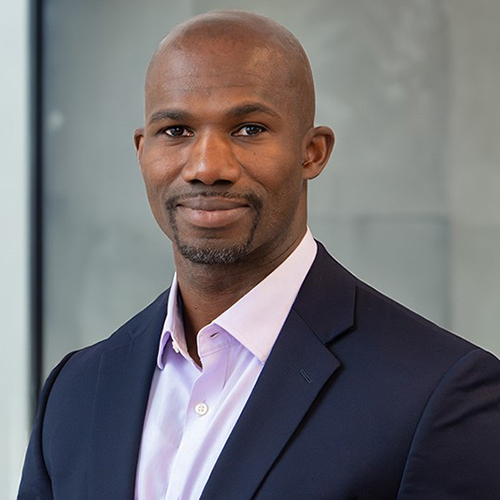
Abidemi Bolu Ajiboye, PhD
Case Western Reserve University
I am Professor of Biomedical Engineering at Case Western Reserve University and director of the Laboratory for Intelligent Machine-Brain Systems (LIMBS). I run the Reconnecting the Hand and Arm to the Brain (ReHAB) clinical trial, with the aim of restoring movement and sensation to people living with chronic tetraplegia due to spinal cord injury. My involvement with the BCI Society has included attending Society conferences since 2015, giving plenary talks at the 2017 European Brain-Computer-Interface Conference (Graz, Austria) and the 2018 American Brain-Computer-Interface Conference (Pacific Grove, CA), and serving on the 2019 BCI Awards committee. As a potential Board Member of the Society, I would prioritize 1) organization of scientific meetings, 2) support of trainees, 3) communication and media relations regarding BCI current events, and 4) expanding inclusion of diverse voices in our field. First, I would help plan our annual meetings, as they are a critical and focused means of sharing our research progress in this rapidly adapting field. Second, I would support current and develop new trainee opportunities, including award mechanisms and regular highlighting of young scientists, to boost their profiles in our field. Third, with the increase in public interest in BCIs, I would, through the Society, serve to educate the public about BCI technology. Finally, diverse populations are underrepresented in those recruited for BCI studies, involved in the design and scientific processes, and ultimately those who would be open to the technology. I aim to work with the Board to develop strategies towards these and related initiatives.

Luke Bashford, PhD
Newcastle University and University of Colorado
My name is Luke Bashford (Newcastle University, UK and University of Colorado, USA). My research area is closed loop intracortical BCIs towards restoring sensorimotor and cognitive function. Previously I was a member and co-chair of the BCI Society Postdoc and Student Committee where I led the diversity initiatives. I am currently a member of the Membership Committee. I am a strong advocate of an open and diverse BCI community, and I will serve in the society in that spirit. I will support the broad work of the BCI Society, but I am particularly keen to focus on establishing research and translation in regions that have limited access to BCIs. My priorities will be to identify and provide resources to those that want to, but are unable to, contribute fully to the BCI community as a result of being underserved or underrepresented, and to share resources for implementing regulatory or policy processes to facilitate the broader adoption of BCI research. I am passionate, collaborative, and extremely enthusiastic to contribute to the BCI Society so that ultimately all those whose quality of life would be improved by BCIs have safe and equitable access to the technology.
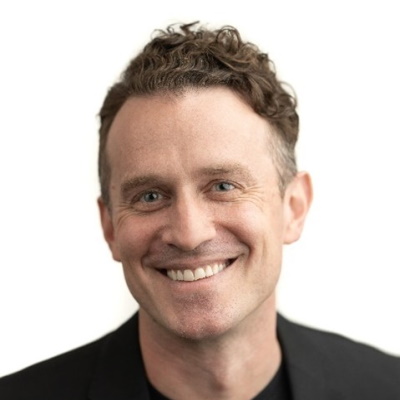
Tom Oxley, PhD
Synchron
I am an interventional neurologist, scientist and entrepreneur. I am very passionate about brain computer interfaces and have dedicated my life to making them available to the millions of people who need them. The BCI Society is poised to be the leading society as the clinical field of BCI matures. This is a big opportunity and also comes with what I see is some major risks over the next few years to achieve this goal. The BCI society will play a critical role in science and advocacy. One domain of interest is how broad the society should be ideologically about definitions of BCI, and how this may impact the capacity to advocate. A second domain of interest I have is in identifying partnerships with clinical societies that can usher in support for community adopted clinical trials that are meaningful, and which will result in successful clinical translation in the field. I am excited about the partnership with the American Society of NeuroRehabilitation that I worked with Leigh Hochberg to create. This will require ongoing work. Thirdly, believe that it is time for the BCI Society to actively grow, and consider having yearly meetings to support the many needs of the community as we move towards clinical trial and reimbursement challenges. This will require a marketing campaign and achieving industry sponsorship which I believe I can help with.
Candidates (Non-implanted Fields)
(Listed in alphabetical order)
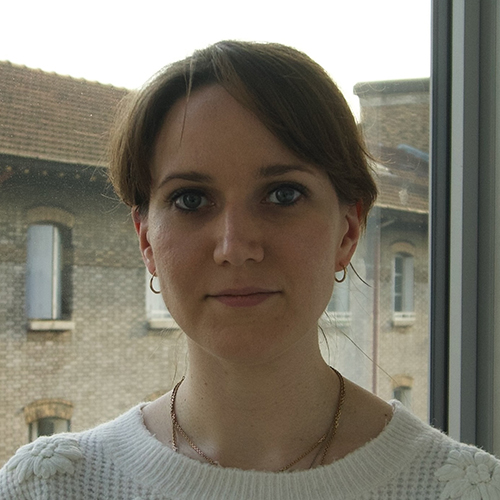
Marie-Constance Corsi, PhD
Paris Brain Institute
Since 2022, I have served as an Inria research scientist in the NERV team at the Paris Brain Institute, focusing on non-invasive BCIs. My expertise lies in deploying cutting-edge instrumentation for electrophysiology to enhance BCI via multimodal and longitudinal approaches.
My journey with the BCI Society started in 2019 where I was warmly embraced by a community that was completely new to me. In 2021, I joined the Postdocs and Students committee, which gave me the opportunity to foster the constructive spirit I had been offered as a student. I chaired the “trainees spotlight” events, where experienced researchers provided feedback to students on their work. In 2022-2023, together with S. Cernera and L. Bashford, I had the privilege to co-chair this committee to notably contribute to the organization of the last BCI meeting.
Looking ahead, I advocate for the inclusion of disabled individuals not only as end-users but as integral members of our community and research teams. I firmly believe in the BCI Society’s role to empower everyone to give their contribution, which is at the very core of our research, and a condicio sine qua non to succeed.
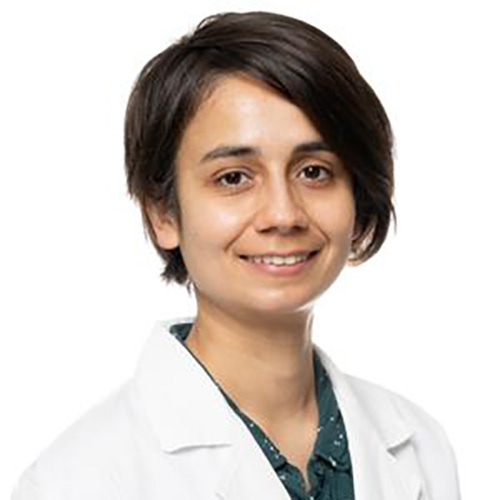
Floriana Pichiorri, MD, PhD
Fondazione Santa Lucia, IRCCS
As a BCI researcher and a neurologist working in neurorehabilitation, I have been interested in the use of BCI technology (EEG based) to investigate the central nervous system in neurologic conditions and to use it to improve the rehabilitation outcome of patients. Indeed, the tools and knowledge generated within the BCI community can shed a light on the mechanisms underlying brain functioning in physiologic and pathologic conditions, improving the efficacy of neurorehabilitation even beyond the specific dedicated BCI-based solutions. The features I value the most within our BCI community are multidisciplinarity and users’ involvement, this latter aspect being particularly relevant nowadays when BCI technology is often reaching the public directly from social and mass media. In this context, my main contribution within the BCI society would be to foster fruitful exchange with nearby research field on one hand, and to pursue the representation of honest, practical and useful BCI applications out in the real world. Along this pathway, our society has a unique opportunity to favor diversity and inclusion for researchers, stakeholders and users.
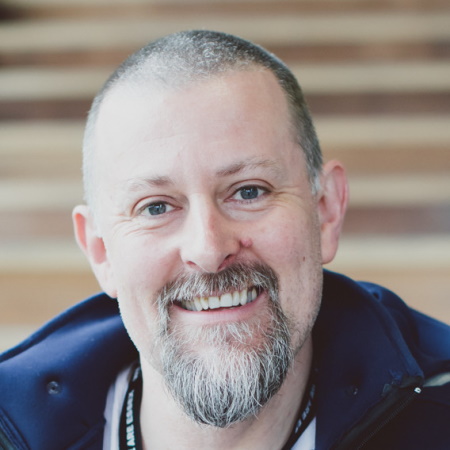
Reinhold Scherer, PhD
University of Essex
Reinhold “Reini” Scherer brings over two decades of expertise to the forefront of non-invasive brain-computer interface (BCI) technology. As a proven leader, he has instrumentally enhanced the performance and user-friendliness of non-invasive BCI systems and mobile neuroimaging technologies. Through extensive research and collaborative efforts, Reini has made significant contributions to the co-development of BCI technologies, ensuring that advancements in the field are both responsible and aligned with the needs of end-users.
Currently serving as a member of the BCI Society board, Reini is actively involved in the Standards and Fundraising committees. Additionally, he is the Scientific Program Committee Chair for the 2025 meeting. If re-elected, Reini will continue to promote collaboration between academia, industry, and policymakers. He will ensure that the BCI Society serves as an interface between the various standardization efforts, promoting robust and ethical practices. Furthermore, he is dedicated to actively driving fundraising efforts, ensuring the acquisition of essential resources to expand the Society’s innovative and inclusive initiatives. Lastly, Reini is committed to public outreach, ensuring that the public has realistic expectations of BCI technology, and he aims to create an inclusive international community that encourages diverse perspectives and global participation.
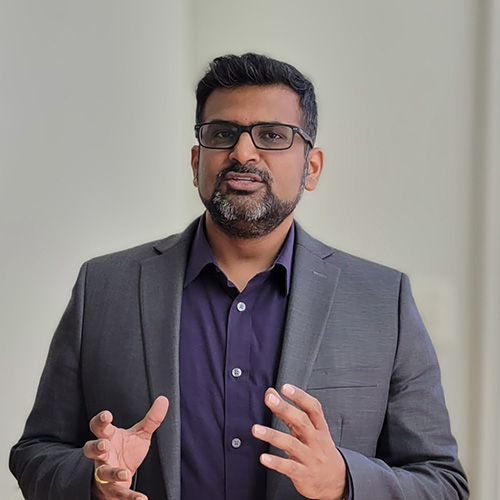
Ramana Kumar Vinjamuri, PhD
University of Maryland, Baltimore County
I am a tenured Associate Professor at the University of Maryland, Baltimore County. With a focus on synergy-based brain-computer interfaces for exoskeletons, I was awarded NSF CAREER Award in 2019 and a supplement in 2022. I received an NSF IUCRC Planning grant in 2020, culminating in a successful planning meeting for the BRAIN center at UMBC in 2022, officially launching the center in 2024. My collaboration with Delsys, Inc., through an SBIR award from NIDILRR in 2022, evolved from my lab’s research on virtual reality and hand synergies. With my role as a visiting scientist at NIDA and with the support of an NSF I-Corps grant in 2024 I am starting to commercialize neurotechnologies for mental health developed in our lab. As an active member in technical societies, I have chaired IEEE Brain workshop of SfN 2023 and currently chairing BMES 2024 among other editorial services. The BCI Society and its meetings have been crucial in advancing and spreading the research conducted in my lab. I warmly recall the 2018 BCI Meeting during which we received a nomination for the BCI Award. I am eager to actively contribute further to the BCI Society, aiming to amplify its influence and importance in the flourishing fields of BCI research and industry.
How to vote
You will receive an invitation to vote by email from SurveyMonkey.
If you have not received the email notification, please contact the Society secretariat.
Election calendar
Nominations open: March 7, 2024
Nominations close: March 21, 2024
Elections open: April 15, 2024
Elections close: April 29, 2024
